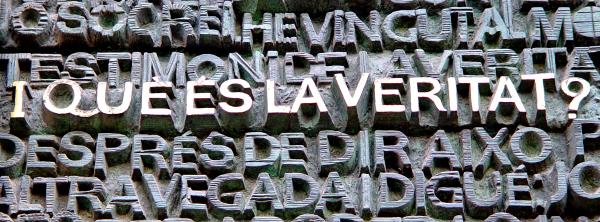The unworkable complexity of DiEM25's data ownership vision
The road to hell is paved with licenses and convenience.
In May 2019 (*) DiEM25 published a Green Paper titled “Technological Sovereignty: Democratising Technology and Innovation”. One week ago I discussed what seems missing from that vision. Here, I worry about the complexity of its “data ownership” part. Paragraphs starting with “GP:" are (sometimes synthesized) quotes from the Green Paper. Paragraphs starting with “Marco: are my own comments.

European Data Commons
GP: The value of data relies on aggregation… As a private commodity, data can be used in unaccountable ways, potentially facilitating manipulation, surveillance, and control; however, as a common good, data can contribute much to cooperative and collective purposes.
GP: Data Commons are a way to aggregate data in a safe, anonymised, transparent and democratically controlled way.
GP: Decommodified data could unlock the power of data-driven technological innovation in the service of common goals and ends - under the direction of public interests rather than private profit.
GP: The main challenge for Data Commons is to create a legal and economic framework in which people want to share their data - and its potential economic value - in a controlled way for the common good.
Marco: “What is truth?” said jesting Pilate. The actual rules defining the “controlled way for the common good” may be a bit hard to write down, in this specific case. See Purposes, below.

Personal Data Storages
GP: Users would host their private data on a Personal Data Storage - a secure location of their choice - and have full control on how to share data and interact with online services.
Marco: “want” (to share their data) and (desire of) “full control” the key words here. People did have autonomous blogs and p2p sharing networks, but they “wanted” Facebook and Netflix. Maybe the main challenge, or more likely the most urgent to face here, is not to “create legal and economic frameworks”. It is to provide education to rights, and to the dangers of “Control vs Convenience”.
GP: A Personal Data Storage may be - for instance - a decentralised, anonymous and encrypted peer-to-peer network…. [whose] crucial aim is that no raw data is revealed to third parties.
Marco: does “third parties” includes “governments” here? Because if it doesn’t no, thanks. Just no.
Marco: while we’re at this… let me point again to my own humble proposal for a much simpler, if intermediate way to give everybody “personal data storages”.
“Intended purposes”?
GP: Besides democratic governance, such a European Data Commons needs to ensure democratic ownership of data which is collectively produced. Third parties wishing to use the data would be subject to licensing requirements, taking into account factors such as company size, intended purpose of data processing, and mechanisms to ensure accountability.
Marco: The whole Open Data movement, including myself, has been shooting from the rooftops for about ten years now, that:
- any restrictions imposed on the use of open data “will limit its use in creating new value."
- there must be “no discrimination against fields of endeavour, says clause 2.1.8 of the Open Definition
Marco: Meanwhile, the Free Software movement had been doing the same since the 90s: Software Freedom Zero is not negotiable, because “placing usage restrictions in software licenses to ban using the program for certain purposes… would be a disastrous path”. See also Clause 6 of the Open Source Definition.
Marco: With this I don’t mean to attack the intentions behind the statements above. I agree with them, in principle. I am equally aware that the Green Paper is deliberately not talking of Open Data, or Free/Open Source Software as officialy defined. I am just very, very, very doubtful that the result would work as intended, in the real world, for more than a couple of years. If the goals are sharing, openness, freedom of speech, democratic ownership and, above all, human beings free to be creative… the “democratic governance” outlined above will eventually crash, every other day, with incompatible existing and future “open” projects from all sides.